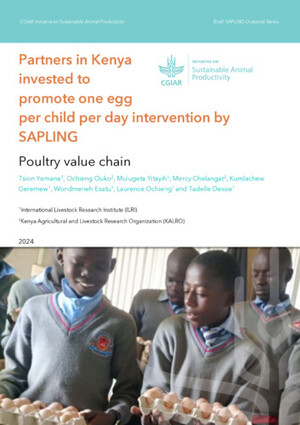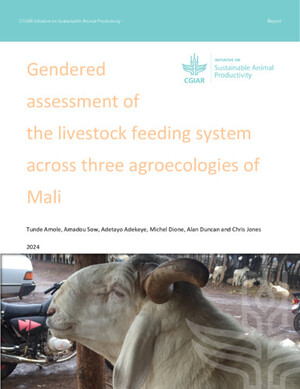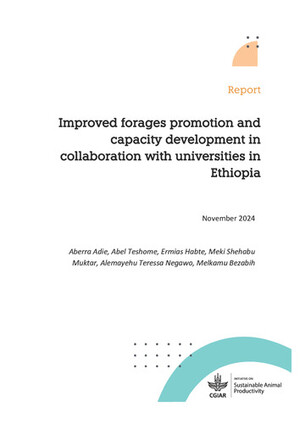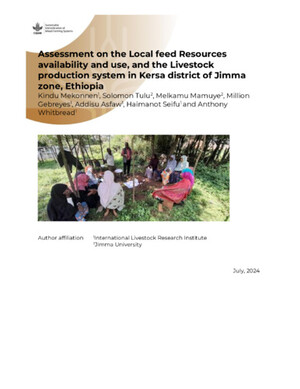
Effect of supplementation of Sesbania sesban on reproductive performance of sheep
Abstract
Two successive experiments were conducted to investigate the long-term effects of supplementation of Sesbania sesban on reproductive performance of Ethiopian Menz sheep. Forty ewes and 40 rams ranging in weight and age between 16–20 kg and 14–15 months respectively were fed a teff straw basal diet and supplemented with two levels of Sesbania (0, and 95% of supplementary protein provided by Sesbania and the rest being provided by concentrates) for 7 months. In experiment 1 (mating period), 4 paired female–male groups (diet of the male with or without Sesbania, and diet of the female with or without Sesbania) consisting of 20 animals each were formed and assigned for mating. Ewes that were mated and did not return to heat in subsequent cycles during the 70 days mating period continued in experiment 2 receiving similar supplementary diets (concentrate alone or Sesbania) for the study of pregnancy and lambing. During the mating period, males and animals supplemented with Sesbania were superior (P<0.05) in daily feed nutrients intake, whereas daily body weight gain (ADG) was significantly different (P<0.05) between treatments but not between sex groups. During pregnancy a significant difference (P<0.05) was observed only in nitrogen intake, and ADG of ewes did not differ (P>0.05) between treatments. Supplementation with Sesbania promoted an increase in testicular size by 13%. Except semen concentration, the other seminal characteristics were not significant (P<0.05) between treatments. The average oestrus cycle length was 19±4.6 days. Mean progesterone profile for cycling ewes on the day of oestrus was 0.4±0.04 and ranged between undetectable levels to 0.75 ng/ml followed by a rise starting on day 4 (1.7±0.16 ng/ml) through day 7 (2.5±0.29 ng/ml) and day 10 (3.6±0.47 ng/ml) to a peak of 3.9±0.45 ng/ml (plateau phase) on day 14. Supplementation with Sesbania improved the proportion of ewes conceived by 17% over supplementation with concentrates. The average birth weight of lambs, and post partum dam weight of ewes was 1.97 kg and 18.6 kg respectively and differed significantly (P<0.05) between treatments. We concluded that inclusion of Sesbania up to 30% in the diet of sheep as supplement before and during the period of mating and pregnancy improved testicular growth and semen quality in rams or reproductive performance of ewes without showing negative effects.
Citation
Mekoya, A.; Oosting, S.J.; Fernandez-Rivera, S.; Tamming, S.; Tegegne, A.; Zijpp, A.J. van der. 2009. Effect of supplementation of Sesbania sesban on reproductive performance of sheep. Livestock Science. v. 121(1). p. 117-125.









